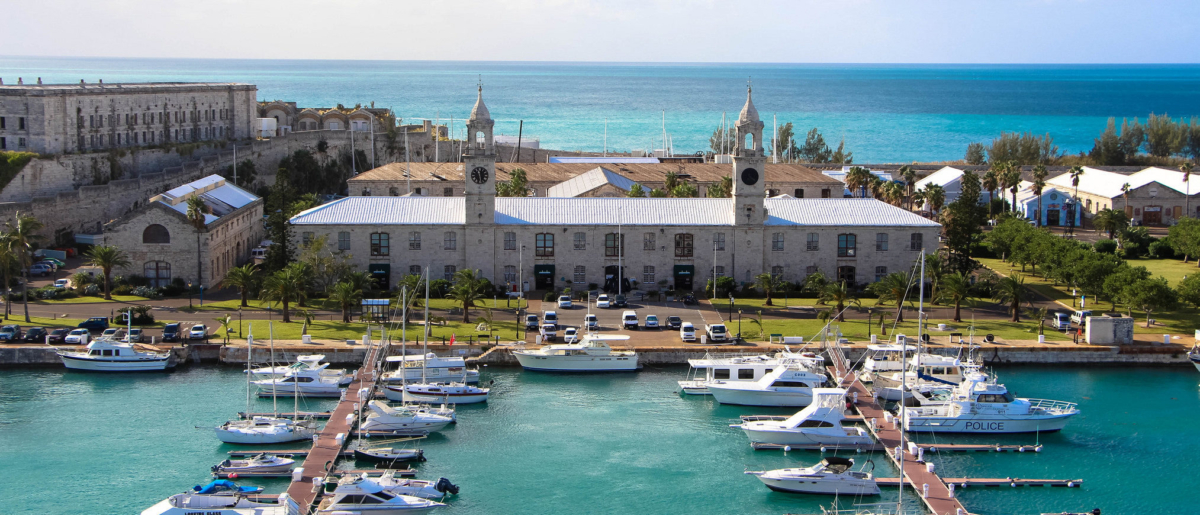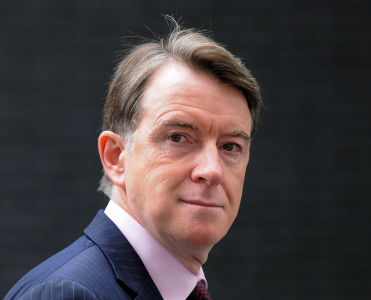There has been much in the coverage Paradise Papers about tax avoidance by celebrities and wealthy individuals, but less attention paid to how these secret companies can provide cover for corruption and other crimes. Here is a compilation of some of the material in the papers that shows how these offshore arrangements could mask potentially corrupt activity. They include the activities of a Ukrainian gas official, the President of Ukraine, Vladimir Putin’s number two and mining giant Glencore, among others.
- Appleby due diligence failings
While looking in to the actions of the law firm Appleby, journalists from the International Consortium of Investigative Journalists (ICIJ) found multiple examples where the offshore firm’s due diligence was subpar or inadequate. In their article, ‘Offshore Magic Circle’ Law Firm Has Record of Compliance Failures, ICIJ go through the slides and notes of Appleby’s compliance manager, Robert Woods, to demonstrate how severe these issues were:
“In another case,” Woods’ notes indicated “Appleby set up a trust for a client to buy property in London and accepted money on his behalf ‘without question.’ Appleby later learned, the presentation acknowledged, that the trust was owned by a former Pakistani official who had been charged with embezzling public money and had “infiltrated allegedly corrupt funds into our business”.
“Some of the crap we accept is amazing, totally amazing,” the presentation’s notes said beneath a slide listing the information Appleby employees needed to know about its clients.
Appleby’s internal files show, however, that even when offshore law firms invest large amounts of money and effort to stay compliant and reputable, the secrecy and the lure of financial gain at the heart of the shadow economy make it difficult for offshore operatives to avoid doing business with criminals, corrupt politicians and other questionable clients.
“MONEY LAUNDERING IS A DIRTY CRIME,” screamed the notes to Woods’ 2011 PowerPoint presentation, appearing in all caps for emphasis. “THERE IS USUALLY ALWAYS A VICTIM AT THE BOTTOM OF THE PILE AND A RICH PERSON AT THE TOP.”
In the firm’s Bermuda office, more than one in 10 companies had ties to clients with political connections, including politicians, their families or their close associates, according to an internal memo.
The law firm also declined work with the global accounting firm Ernst & Young when it approached Appleby for possible help with the purchase of two $20 million Gulfstream jets for two sons of a former government minister in Azerbaijan and a man named Manouchehr Khangah. Appleby checked the WikiLeaks database of U.S. diplomatic cables and learned that one of the U.S. Embassy’s contacts referred to Khangah as the “frontman” for a former politician who headed what the U.S. cables called “one of the most corrupt operations in Azerbaijan.” Appleby declined the work.
When the Bermuda Monetary Authority audited an Appleby subsidiary in October 2014, it found “key or highly significant” weaknesses in nine areas. Nearly half – 46 percent – of the files reviewed by the agency lacked information on the origin of the money Appleby managed for its clients. There was “no evidence” that Appleby identified risks of money laundering and terrorism financing, the agency said, and the firm had not adopted the recommendations from previous audits.
“These omissions have heightened the Authority’s concern about the firm’s regulatory compliance and control environment,” the agency said. In October 2015, an Appleby director disclosed in a confidential document to government regulators in the British Virgin Islands that the Bermuda office had “settled” a fine imposed by Bermuda regulators after it conceded that it had failed to follow up on many of the agency’s recommendations for fixing weaknesses in its anti-money-laundering net. Appleby’s internal records show that the firm set aside $500,000 for the fine, but its existence has never been publicly disclosed. There was “no public censure,” the director wrote, adding that Bermuda’s regulators “agreed to keep the matter entirely private.”
The Bermuda Monetary Authority’s notice for the Appleby board of directors, dated 17 April 2015, comes to the same conclusion as ICIJ. The BMA reported Appleby’s failure to implement the recommendations from BMAs prior on-site report in 2013. This was among law firms other alarming issues, such as not being able to provide a suitable assessment on the adequacy of its anti-moneylaundering/counter terrorist financing systems and controls, or failure to properly assess the risk rating of customers, who were considered to be politically exposed persons.
- Kazakhstan magnate
The Paradise Papers also revealed how the natural resources of Kazakhstan were in the hands of only one man. The Organised Corruption and Crime Reporting Project (OCCRP) identified this person to be billionaire Sauat Mynbayev:
“…the unassuming Sauat Mynbayev has negotiated deals on behalf of his government with oil industry executives from across the world. Officials from oil titans like Chevron and ExxonMobile, Lukoil, the Korea National Oil Corporation, and many others have shaken his hand and signed deals worth billions.
But Mynbayev isn’t what he seems. He’s not just a government technocrat – he’s a magnate himself. And it’s not just oil and gas.”
- Glencore’s DRC deals
The revelations of the Paradise Papers found multinational commodity trading and mining company Glencore to be in the spotlight of yet another investigation:
“The leaked files provide the most detailed evidence yet of the behind-the-scenes lobbying and the money flows that helped Katanga, in which Glencore was just a shareholder at the time, acquire mining licenses. The files also raise questions about how Katanga, which was later taken over by Glencore, managed to pay a price that critics have viewed as less than the licenses’ real value.
The records shed light on how a global colossus, aided by a trusted offshore law firm, uses financial havens to cloak its lucrative dealings in secrecy even as it wields vast influence in resource-rich but corruption-plagued parts of the world. The Appleby documents show that Glencore diverted millions of dollars through Bermuda and other tax havens and fought off lawsuits and tax bills in Europe and the Caribbean.
Five months before Glencore bought out Gertler, the U.S. Justice Department settled a bribery case brought against the New York-based hedge fund Och-Ziff Capital Management Group under the Foreign Corrupt Practices Act. The Justice Department’s discussion of the case made mention of Lora Enterprises, which the settlement described as controlled by an unnamed Israeli “DRC partner” widely believed to be Gertler.
The Justice Department alleged that an Och-Ziff company lent Lora Enterprises $110 million in November 2010 and that between then and February 2011, “DRC Partner caused approximately $20 million in corrupt payments to be made to various DRC officials,” including to unnamed “DRC official 2,” believed to be Augustin Katumba Mwanke. In Sept. 2016, an Och-Ziff subsidiary pleaded guilty and agreed to pay $413 million in penalties and fines.”
Glencore was also examined more closely by the Süddeutsche Zeitung:
“Glencore’s compliance division should have stopped this partnership with Dan Gertler,” says Mark Pieth, an internationally respected Swiss corruption expert. “I see only two possibilities: Either Glencore didn’t perform due diligence on Dan Gertler or they knew very well that there was a corruption risk – and deliberately accepted it.”
Further details about Gertler’s dealings in Congo have been released publicly in recent years. In May 2013, an expert panel chaired by former UN Secretary General Kofi Annan determined that Congo squandered mining rights in five dubious deals between 2010 and 2012 by selling them at undervalued prices, and is estimated to have lost at least $1.3 billion – “equivalent to twice its annual spending on health and education combined.” The report claims that a Gertler company was involved in all of these deals. Gertler categorically refutes all the allegations made by the Africa Progress Panel and says his company was not given the opportunity to respond to any of the allegations against it.
- Poroshenko and candy company
As happened in previous leaks, also the Paradise Papers did not come out without a mention of Ukraine’s President, Petro Poroshenko. OCCRP took a closer look at Poroshenko’s relation with his candy company:
“The records show that on June 17, 2014 – ten days after Poroshenko’s inauguration – Vadim Medvedev, a lawyer working for Avellum in Ukraine, emailed Sean Dowling, an Appleby managing partner in the Isle of Man office, on behalf of the president.
“We are looking for a service provider to establish an offshore holding company for a client who is a PEP [politically exposed person],” he wrote. “The matter itself is extremely sensitive. … The client’s name is Petr Poroshenko. We are working on restructuring of his confectionary business (Roshen).”
Medvedev explained that Avellum preferred a BVI jurisdiction, but that a company in the Isle of Man would also work. Then the Ukrainian lawyer spelled out the structure they envisioned:
“In order to obtain access to international markets, we are going to establish a new holding company for the group in the Luxembourg. Underneath will be a Dutch sub-holding, which will hold all operating companies. For tax purposes, there will be a Cypriot entity on top of the LuxCo, which will be owned by [the proposed] offshore company.””
- Ukrainian gas official
Poroshenko was not the only Ukrainian mentioned in the leak. Sergiy Oleksiyenko, a former financial whiz was revealed to have used offshore foundation to circumvent Ukraine’s currency controls. OCCRP investigated his actions further:
“After the Pioneer Foundation was established, it needed a bank account. Appleby said no bank in the Isle of Man would open an account for Ukrainian citizens, so the focus shifted to the Bank of Cyprus.
In April 2016, Appleby sent a signed 45-page application to the Bank of Cyprus via courier service. The application was signed by Oleksiyenko, his wife, and his 6-year-old son – the foundation’s beneficiaries.”
- Russian wife of Putin’s number two man
Meanwhile in Russia, OCCRP took a look at how “Wife of Putin’s Number Two Man Gets Rich Quickly”.
“And yet, there’s a problem. For years, as a public servant, her ex-husband was required to disclose his and his wife’s incomes. Until 2011, Sechin reported zero income for his wife in his annual declarations (and no extravagant amounts for himself).
But after their divorce, Sechina started acquiring stakes in telecom, electricity, agriculture, and real estate companies in Russia. Though her name had never been associated with any major companies or other sources of income that would point to any large wealth, in 2013 alone she acquired stakes in a number of Russian companies that showed assets worth over €55 million (US$ 76.7 million) on their balance sheets by the end of that year.
And it wasn’t only in Russia. It appears that one of the first things Sechina did after her divorce was to establish a company in the Cayman Islands. Its purpose was to invest in a Russian real estate project run by businessman and banker Julius Meinl V, the heir of the global coffee empire, who expected investors to contribute tens of millions of euros. Meinl had previously been accused of defrauding investors.”
- Lobbying in UK
As highlighted in the Guardian’s article, the Paradise Papers also gave some insight how secrecy and lobbying are interrelated.
“There is a political dimension too, which was not apparent in the Panama Papers. The files show the IFC speaking of its influential “penetration” of the UK government with lobbying of ministers and civil servants. It boasted that this behind-the-scenes activity may have prevented world leaders from agreeing more wide-ranging transparency measures at a G8 summit in 2013.
So, at the same time Appleby was pushing back against greater transparency in offshore tax havens, and arguing that such moves would be counterproductive and unnecessary, it was consistently failing to keep to standards that campaigners say are not tough enough anyway.”
Again, politically exposed people were in a crucial position.
“The documents reveal other worrying vignettes, including one involving a billionaire client designated as a PEP – politically exposed person. PEPs require extra scrutiny and due diligence.
This particular billionaire wanted to do some business through Appleby’s Bermuda office, but the BMA resisted. It wanted more checks conducted on him, because the businessman had very obviously provided misleading information about his background on an important application form.
But Appleby did not want to do this extra due diligence work; instead, it suggested rerouting the application through the BVI, where it “does not appear that the same issues arise”.
The documents show some partners in the firm were clearly unhappy. “This is strange stuff,” one said. “Perhaps leave me out of the group for now in case there’s something I’m not supposed to know.”
There was deep unease, too, around another PEP who had been a client of the company since 1984. In 2013, Appleby realised he was not the man they thought he was”.
- Conflict of interests in Angola
In Angola sovereign wealth fund’s manager used cash for own projects. This manager, Jean-Claude Bastos de Morais, is a Swiss-Angolan entrepreneur who founded and managed Angola’s first investment bank, Banco Quantum Capital:
“The internal mechanics of Quantum were that for each of the seven funds, an “investment committee” staffed by Bastos and others would advise on investments. It is the minutes of those investment committee meetings, contained in the Paradise Papers, that reveal that on at least three occasions besides Port of Caio, Bastos’s firm decided the money would be invested in projects in which he held an interest.”
- Tax agreements in Mauritius
The same Angolan sovereign wealth fund manager is a friend of president Dos Santos’s son. He received millions in “management fees” from public fund, channeled through shell companies. ICIJ took a closer look at the controversial tax agreements between the Mauritius and the African countries:
“With the license approved, Appleby’s Mauritius office helped Bastos and his company move some Angolan public funds slated for the management of investments in African hotels and infrastructure. The money moved through offshore companies in three jurisdictions – including some incorporated in Mauritius, known for its low taxes and high tolerance for secrecy.
In an email sent to Appleby’s Mauritius employees to remind them of the sensitivity of their new client, Quantum Global’s lawyer wrote – in boldface type – that a British Virgin Islands company called Red Sahara Ltd. (later renamed QG Investments Ltd.), which would later receive tens of millions of dollars in dividends, was ultimately owned by Bastos. The information was “highly confidential,” the lawyer wrote. “That is to say, please do not share any information.”
Mauritius also provided a low-tax haven for substantial fees the Angolan fund paid Bastos’ operation. The financial statements of QG Investments Africa Management Ltd., Bastos’ Mauritius company, show it received $63.2 million in management fees throughout 2015, of which $21.9 million was sent to a Quantum Global company in Switzerland.
“The fees seem extraordinarily high,” said Andrew Bauer, an economic analyst and sovereign wealth fund expert who reviewed the fee payments.”




